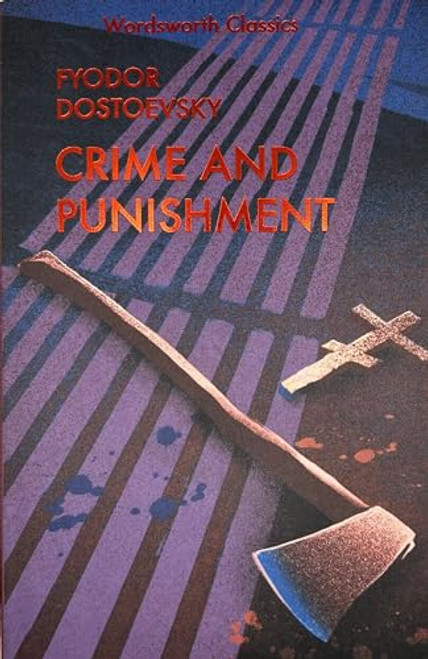Crime and Punishment, by Fyodor Dostoevsky, is part of the Barnes & Noble Classicsseries, which offers quality editions at affordable prices to the student and the general reader, including new scholarship, thoughtful design, and pages of carefully crafted extras. Here are some of the remarkable features of Barnes & Noble Classics:
- New introductions commissioned from today's top writers and scholars
- Biographies of the authors
- Chronologies of contemporary historical, biographical, and cultural events
- Footnotes and endnotes
- Selective discussions of imitations, parodies, poems, books, plays, paintings, operas, statuary, and films inspired by the work
- Comments by other famous authors
- Study questions to challenge the reader's viewpoints and expectations
- Bibliographies for further reading
- Indices & Glossaries, when appropriate
Few authors have been as personally familiar with desperation as Fyodor Dostoevsky, and none have been so adept at describing it. Crime and Punishmentthe novel that heralded the authors period of masterworkstells the story of the poor and talented student Raskolnikov, a character of unparalleled psychological depth and complexity. Raskolnikov reasons that men like himself, by virtue of their intellectual superiority, can and must transcend societal law. To test his theory, he devises the perfect crimethe murder of a spiteful pawnbroker living in St. Petersburg.
In one of the most gripping crime stories of all time, Raskolnikov soon realizes the folly of his abstractions. Haunted by vivid hallucinations and the torments of his conscience, he seeks relief from his terror and moral isolationfirst from Sonia, the pious streetwalker who urges him to confess, then in a tense game of cat and mouse with Porfiry, the brilliant magistrate assigned to the murder investigation. A tour de force of suspense, Crime and Punishment delineates the theories and motivations that underlie a bankrupt morality.
In one of the most gripping crime stories of all time, Raskolnikov soon realizes the folly of his abstractions. Haunted by vivid hallucinations and the torments of his conscience, he seeks relief from his terror and moral isolationfirst from Sonia, the pious streetwalker who urges him to confess, then in a tense game of cat and mouse with Porfiry, the brilliant magistrate assigned to the murder investigation. A tour de force of suspense, Crime and Punishment delineates the theories and motivations that underlie a bankrupt morality.
Priscilla Meyer is Professor of Russian Language and Literature at Wesleyan University, in Middletown, Connecticut. She published Find What the Sailor Has Hidden, the first monograph on Vladimir Nabokovs Pale Fire, and edited the first English translation of Andrei Bitovs collection of short stories, Life in Windy Weather.











